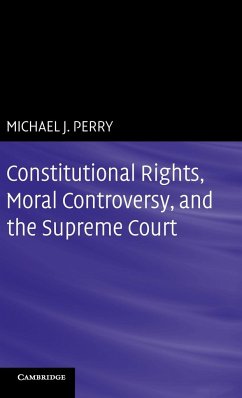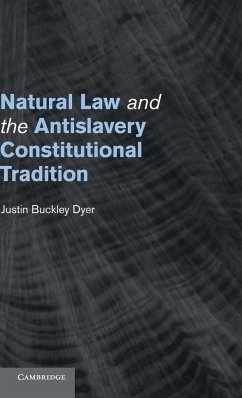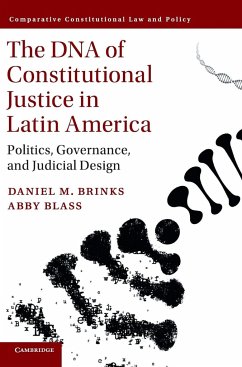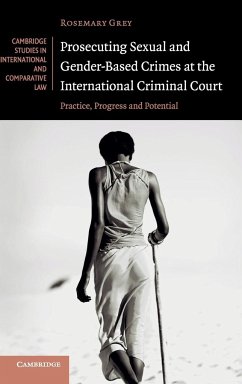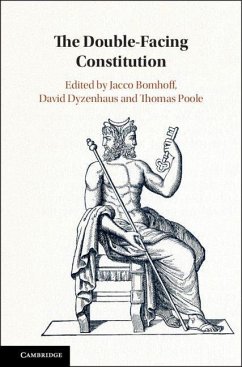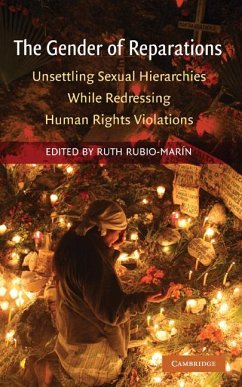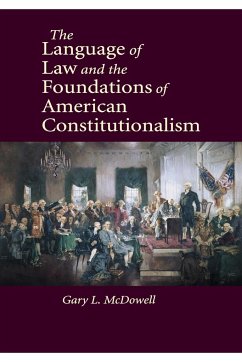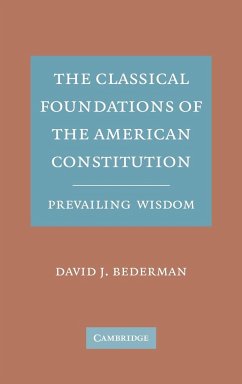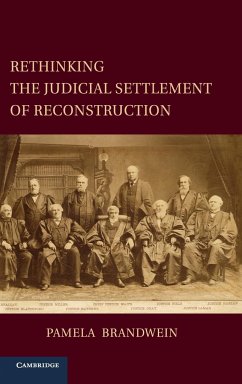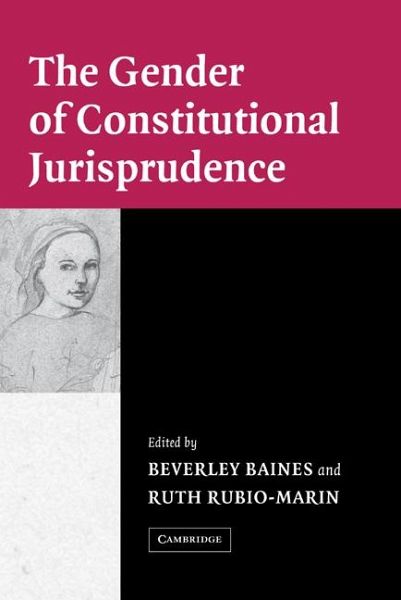
The Gender of Constitutional Jurisprudence
Versandkostenfrei!
Versandfertig in 1-2 Wochen
95,99 €
inkl. MwSt.
Weitere Ausgaben:

PAYBACK Punkte
48 °P sammeln!
A description of the constitutional rights of women in twelve countries.To explain how constitutions shape and are shaped by women's lives, the contributors to this volume examine constitutional cases pertaining to women in twelve countries. Analyzing jurisprudence about reproductive, sexual, familial, socio-economic, and democratic rights, they focus constructively on women's claims to equality, asking who makes these claims, what constitutional rights inform them, how they have evolved, what arguments work in defending them, and how they relate to other national issues. Their findings reveal...
A description of the constitutional rights of women in twelve countries.
To explain how constitutions shape and are shaped by women's lives, the contributors to this volume examine constitutional cases pertaining to women in twelve countries. Analyzing jurisprudence about reproductive, sexual, familial, socio-economic, and democratic rights, they focus constructively on women's claims to equality, asking who makes these claims, what constitutional rights inform them, how they have evolved, what arguments work in defending them, and how they relate to other national issues. Their findings reveal significant similarities in outcomes and in reasoning about women's constitutional rights in these twelve countries, challenging the tradition of distinguishing constitutional jurisprudence depending on whether the country has a written or unwritten constitution, subscribes to civil or common law, is a federal or unitary state, limits constitutional adjudication to the public domain, accords international norms binding or subject to incorporation force, or relies on a specialized or general court to adjudicate constitutional matters.
Table of content:
1. Introduction: toward a feminist constitutional agenda Beverly Baines and Ruth Rubio-Marin; 2. Speaking into a silence: embedded constitutionalism, the Australian Constitution and the rights of women Isabel Karpin and Karen O'Connell; 3. Using the Canadian Charter of Rights and Freedoms to constitute women Beverly Baines; 4. Emancipatory equality: gender under the Columbian Constitution Martha I. Morgan; 5. Gender equality and international human rights in Costa Rican constitutional jurisprudence Alda Facio, Rodrigo Jiménez and Martha Morgan; 6. Constituting women: the French ways Eric Millard; 7. Gender in the German Constitution Blanca Rodríguez Ruiz and Ute Sacksofsky; 8. India, sex equality, and constitutional law Martha C. Nussbaum; 9. Constitutional transformation, gender equality, and religious/national conflict in Israel: tentative progress through the obstacle course Ran Hirschl and Ayelet Shachar; 10. 'No nation can be free when one half of it is enslaved': constitutional equality for women in South Africa Saras Jagwanth and Christina Murray; 11. Engendering the constitution: the Spanish experience Ruth Rubio-Marin; 12. Gender equality from a constitutional perspective: the case of Turkey Hilal Elver; 13. Gender and the United States Constitution: equal protection, privacy, and Federalism Reva B. Siegel.
To explain how constitutions shape and are shaped by women's lives, the contributors to this volume examine constitutional cases pertaining to women in twelve countries. Analyzing jurisprudence about reproductive, sexual, familial, socio-economic, and democratic rights, they focus constructively on women's claims to equality, asking who makes these claims, what constitutional rights inform them, how they have evolved, what arguments work in defending them, and how they relate to other national issues. Their findings reveal significant similarities in outcomes and in reasoning about women's constitutional rights in these twelve countries, challenging the tradition of distinguishing constitutional jurisprudence depending on whether the country has a written or unwritten constitution, subscribes to civil or common law, is a federal or unitary state, limits constitutional adjudication to the public domain, accords international norms binding or subject to incorporation force, or relies on a specialized or general court to adjudicate constitutional matters.
Table of content:
1. Introduction: toward a feminist constitutional agenda Beverly Baines and Ruth Rubio-Marin; 2. Speaking into a silence: embedded constitutionalism, the Australian Constitution and the rights of women Isabel Karpin and Karen O'Connell; 3. Using the Canadian Charter of Rights and Freedoms to constitute women Beverly Baines; 4. Emancipatory equality: gender under the Columbian Constitution Martha I. Morgan; 5. Gender equality and international human rights in Costa Rican constitutional jurisprudence Alda Facio, Rodrigo Jiménez and Martha Morgan; 6. Constituting women: the French ways Eric Millard; 7. Gender in the German Constitution Blanca Rodríguez Ruiz and Ute Sacksofsky; 8. India, sex equality, and constitutional law Martha C. Nussbaum; 9. Constitutional transformation, gender equality, and religious/national conflict in Israel: tentative progress through the obstacle course Ran Hirschl and Ayelet Shachar; 10. 'No nation can be free when one half of it is enslaved': constitutional equality for women in South Africa Saras Jagwanth and Christina Murray; 11. Engendering the constitution: the Spanish experience Ruth Rubio-Marin; 12. Gender equality from a constitutional perspective: the case of Turkey Hilal Elver; 13. Gender and the United States Constitution: equal protection, privacy, and Federalism Reva B. Siegel.





